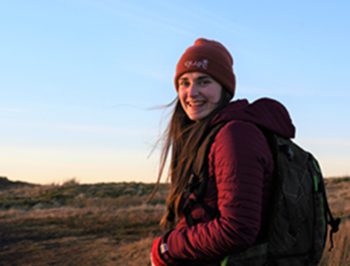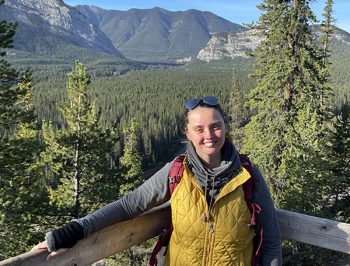
Katie has always been amazed by the natural world, which inspired her to undertake a BSc in Zoology at the University of Glasgow. She was selected to go on a research expedition to Tobago, where she completed her undergraduate thesis on the effects of habitat disturbances on the host-parasite interactions of bats and their ectoparasites. This experience greatly furthered Katie’s interest in bat ecology and conservation, which encouraged her to continue her studies at the University of Glasgow, completing an MRes in Ecology and Environmental Biology. Her research project focused on ectoparasitic bat flies as a possible transmission route for Bartonella in vampire bats, conducting her field work in the rural Andes of Peru. In between her studies, Katie also worked as an Ecologist in the renewable energies sector, primarily undertaking bat activity surveys for wind farm developments. Katie is now doing a PhD at the University of Sussex, co-funded by Vincent Wildlife Trust. Her PhD aims to assess the permeability of landscapes to rare species of bat using novel telemetry techniques and to identify the locations of key swarming and roosting sites.

Charlotte fell in love with the flora and fauna of the UK at a young age. Her interest in wildlife conservation developed throughout school where she was fortunate enough to volunteer on projects in Madagascar and Ecuador. This led her to complete a BSc in Zoology with Conservation at Bangor University. As part of her degree, Charlotte worked on an elephant reintegration project in Thailand. Charlotte continued to work here after graduating, leading the biodiversity project and educational outreach programme. Following this, she returned to the UK working as an Ecologist for several years, primarily on protected species surveys and mitigation, where her love of bats developed. This year whilst the bats were hibernating, she escaped the cold UK winter and worked in the Seychelles, monitoring lemon shark, turtle, tortoise and mangrove populations. Charlotte is now doing a PhD at the University of Sussex, where she aims to guide bats — with a specific focus on horseshoe species — using acoustic lures and deterrents around anthropogenic threats within the landscape.

Josh developed a love for the natural world through RSPB magazines, wildlife documentaries and adventuring through the Sussex countryside during his childhood. Inspired by visits to the Knepp estate, this love of nature first translated into a research interest through an early project on the long-term sustainability of rewilding on the estate. Josh then completed a BSc in Geography at the University of Exeter, throughout which his interests in the interconnectivity within ecosystems and how people interact with different species deepened. As part of his degree, Josh focused his undergraduate thesis on the carbon sequestration potential of ponds engineered by the reintroduced Eurasian beavers at the Cornwall Beaver Project. Josh also completed a placement year during his degree working at Alldays Wildlife and Communities Research Centre, South Africa, in partnership with the University of Durham. He led two predator research projects at the centre, aiming to develop reproducible, low-cost methodologies for assessing predator abundance in relation to human landscape features for species including leopard and brown hyena on game farms. Josh is now doing a PhD with the University of Exeter, co-funded by Vincent Wildlife Trust. His PhD aims to investigate future scenarios for mammalian carnivore populations in Britain, using mixed methods to assess the emerging ecological and socio-political factors affecting the recovery of these species and their long-term co-existence with humans.